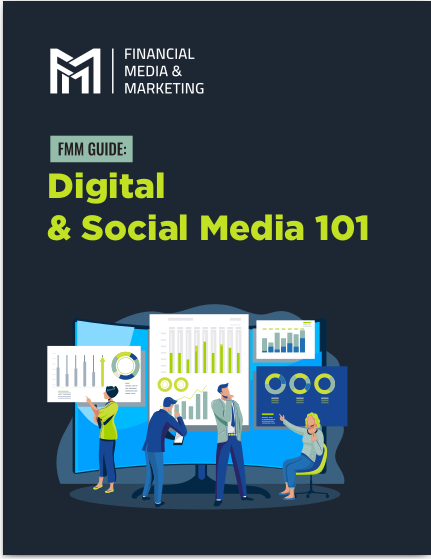Key Takeaways
-
Understanding what search engines prioritize can help you tailor your content and marketing strategies to stay ahead of competitors.
-
Focusing on user intent, website authority, and technical optimization will drive better engagement and higher rankings for your business.
Why Search Engines Matter More Than Ever
In today’s digital landscape, search engines dictate the visibility of your brand. For financial advisors like you, having a strong online presence isn’t just an advantage—it’s a necessity. With potential clients constantly searching for trustworthy advisors, being at the top of search results positions you as a credible and reliable choice.
But what exactly makes search engines favor some websites over others? Understanding how search engines operate and what they prioritize can transform your approach to content creation, SEO strategies, and client engagement. Let’s break down the most important factors so you can use this knowledge to get ahead of the competition.
User Intent: Give Your Audience Exactly What They’re Searching For
Search engines, particularly Google, prioritize delivering the most relevant results to their users. To succeed, you must align your content with user intent. Essentially, user intent refers to what someone is looking to achieve when they type a query into a search engine.
Types of User Intent
-
Informational Intent: Users are seeking answers or learning something new.
-
Navigational Intent: Users are looking for a specific website or page.
-
Transactional Intent: Users are ready to make a decision or take action (e.g., signing up or contacting you).
-
Commercial Intent: Users are researching before making a purchase or investment.
How to Leverage User Intent
To cater to user intent effectively:
-
Create Value-Driven Content: Develop blog posts, guides, and FAQs that answer common questions your clients have about financial planning or investment strategies.
-
Target Relevant Keywords: Use tools to research keywords tied to each intent type. For example, phrases like “How to choose a financial advisor” cater to informational intent, while “Contact a financial advisor near me” aligns with transactional intent.
-
Structure Your Content Well: Search engines love clear, scannable content. Use headings, bullet points, and short paragraphs to make your content easy to read.
By understanding the intent behind search queries, you can deliver content that satisfies your audience’s needs while climbing search rankings.
Website Authority: Build Trust With Search Engines
Search engines prioritize authoritative websites that demonstrate expertise, trustworthiness, and credibility. For financial advisors, building your website’s authority is essential to standing out in a competitive digital market.
Key Components of Authority
-
Quality Backlinks: Backlinks are links from other trusted websites pointing to your site. They signal to search engines that your content is valuable and credible.
-
Content Depth: Comprehensive, well-researched content on financial topics shows search engines (and users) that you are an expert in your field.
-
User Engagement: Metrics like bounce rate, time on page, and click-through rates indicate whether users find your content engaging and useful.
Strategies to Boost Website Authority
-
Publish Long-Form Content: Detailed guides or articles (1,000+ words) tend to rank higher because they offer depth and value.
-
Earn Backlinks Naturally: Reach out to industry publications, collaborate with bloggers, or create shareable content that others want to link to.
-
Keep Content Fresh: Regularly update older content with new insights and information to maintain relevance.
-
Showcase Credentials: Highlight your certifications, client testimonials, and case studies to establish trust.
The more authority your website builds, the higher you’ll rank for competitive search terms, helping you attract leads and clients.
Technical Optimization: Make Search Engines Happy
Beyond content and authority, search engines prioritize the technical health of your website. If your site isn’t optimized properly, you could lose rankings and miss out on potential clients.
Critical Aspects of Technical Optimization
-
Page Speed: Faster websites rank higher and provide a better user experience. Aim for loading times of under three seconds.
-
Mobile-Friendliness: Search engines prioritize websites that are fully responsive on mobile devices.
-
Secure Websites (HTTPS): Sites with HTTPS encryption are seen as safer and rank better.
-
Structured Data: Using schema markup helps search engines understand your content and display it more effectively in search results.
Simple Fixes for a Technically Optimized Site
-
Compress Images: Large files slow down your website, so optimize images to improve page speed.
-
Improve Navigation: Ensure your site’s menu and internal links are clear and easy to use.
-
Fix Broken Links: Search engines dislike sites with broken pages or links. Use tools to identify and correct these issues regularly.
-
Optimize Meta Tags: Titles and meta descriptions play a key role in click-through rates. Keep them clear, concise, and keyword-focused.
By keeping your site technically sound, you’re not only helping search engines crawl and index your pages effectively but also improving the experience for your audience.
Content Quality: Balance Information and Engagement
While technical optimization and authority matter, content quality remains the backbone of any search engine strategy. The days of keyword stuffing are long gone—search engines now reward content that genuinely helps readers.
What Makes Content High-Quality?
-
Relevant and Actionable: Your content should address the exact questions your clients have while offering practical insights.
-
Readable and Engaging: Break up text with visuals, bullet points, and short paragraphs to keep readers hooked.
-
Optimized Without Overdoing It: Use keywords naturally and avoid overloading content with unnecessary terms.
-
Unique and Valuable: Ensure your content brings something new to the table, whether it’s fresh insights or an engaging tone.
Creating Content That Converts
For financial advisors, high-quality content might include:
-
Educational Blogs: Explain complex financial concepts like tax strategies or retirement planning in an easy-to-digest way.
-
Client-Focused Guides: Step-by-step resources that help potential clients navigate their financial decisions.
-
Videos and Podcasts: Multimedia content that engages users and sets you apart.
-
Interactive Tools: Calculators or checklists that offer value while keeping visitors on your site.
When search engines detect that your content provides value and engages readers, you’re far more likely to rank higher.
Monitor, Analyze, and Adapt: Stay Ahead of the Competition
Search engines are always evolving, so it’s essential to track your progress and adapt your strategies regularly.
Tools to Monitor Performance
-
Google Analytics: Track traffic, user behavior, and conversions on your website.
-
SEO Tools: Use platforms to identify keyword opportunities, analyze competitors, and monitor rankings.
Key Metrics to Watch
-
Organic Traffic: The number of visitors coming to your site from search engines.
-
Bounce Rate: A high bounce rate might signal that users aren’t finding your content useful.
-
Conversion Rates: Measure how many visitors take action, such as filling out a contact form.
Adapting to Trends
Stay informed about the latest search engine updates. For example, recent trends emphasize:
-
Voice Search Optimization: More users are searching using voice assistants, so optimize for conversational keywords.
-
User Experience Signals: Search engines consider factors like page speed, navigation, and mobile responsiveness when ranking sites.
-
AI and Content Creation: While AI tools can help generate content ideas, remember that unique, human-written content always performs best.
By monitoring and adjusting your SEO efforts, you’ll stay ahead of competitors and ensure your online presence remains strong.
Stay Ahead by Focusing on What Matters Most
Search engines might feel complex, but their ultimate goal is simple: to deliver the most relevant, high-quality results to users. By understanding what search engines prioritize—user intent, website authority, technical optimization, and content quality—you can position yourself as the go-to financial advisor for your target audience.
Make sure to regularly review your website’s performance, update content, and stay adaptable as search trends evolve. The payoff? Higher search rankings, more leads, and ultimately, a thriving financial advisory business.










